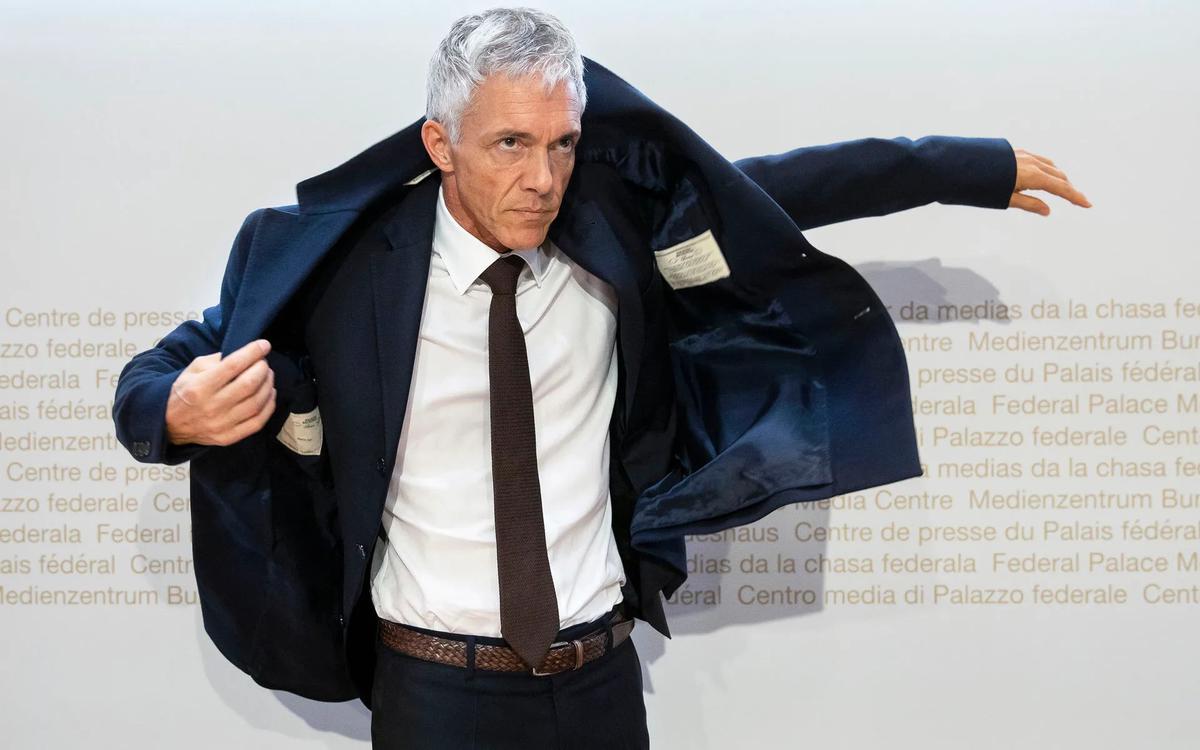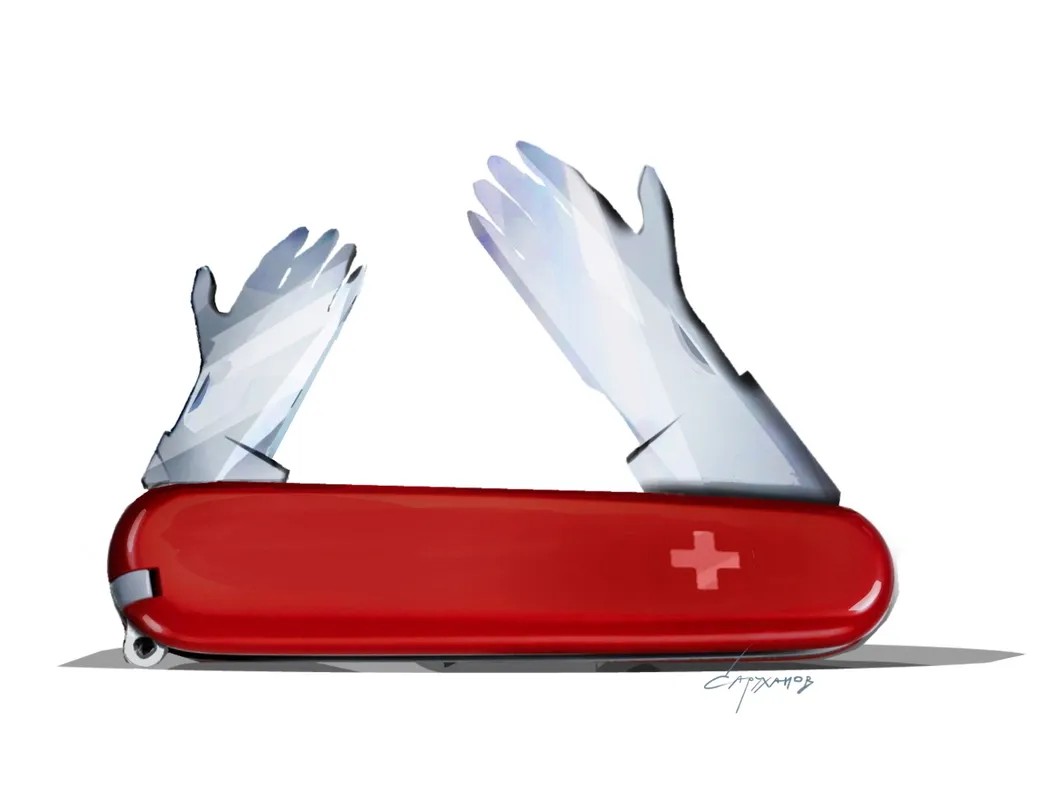
In the Swiss media, the “expert on Russia” of the Swiss Federal Prosecutor’s Office appears under the code name “Victor K.” due to requirements of the Swiss law. In the media of other countries, his real name, according to our information, was not called either.
We are the first who dared to call him by his real name and publish his photo.
The Swiss are trying to find out whether Lauber’s subordinate really traveled to Russia in order to prepare for an aggressive interrogation of Andreas Gross appointed by the Council of Europe as rapporteur on the case of the deceased Russian lawyer Sergey Magnitsky, who revealed the mechanics of embezzlement from the Russian budget. And if the gathering of “counterarguments” in Russia, which in essence represented the position of Magnitsky’s tormentors, was a job assignment or someone’s personal initiative. And at the same time the Swiss try to understand why the criminal cases of former minister Yelena Skrynnik, the son of the former Prosecutor General Chaika and a set of criminal cases related to possible bribes in FIFA collapsed in Switzerland.
However, the Swiss do not know yet that Lauber’s subordinate continued to travel to Russia even after he was kicked out of the law enforcement. Novaya Gazeta has exclusive information on the movements of the former Swiss prosecutor’s office expert.
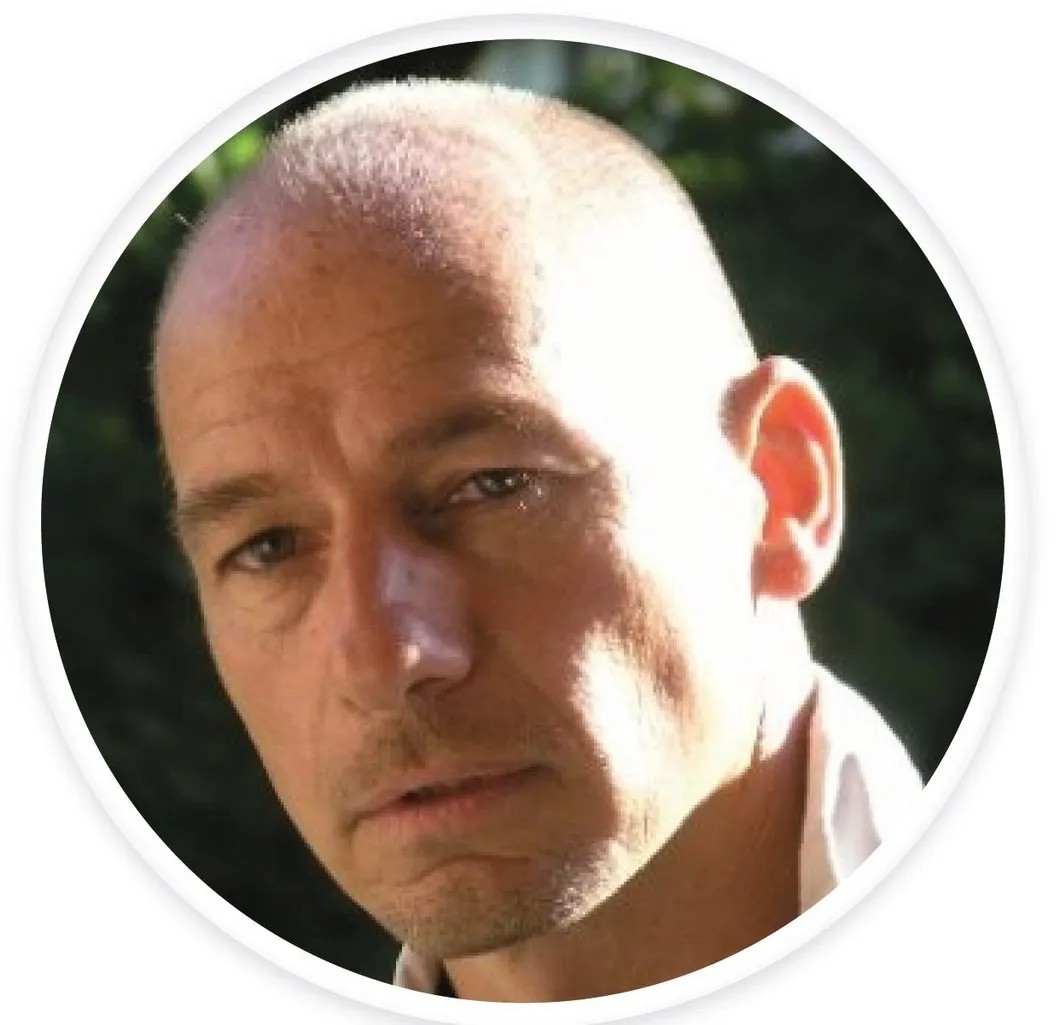
Policeman Philosopher
In 1991 Vinzenz Schnell, а Slavicist and philosopher from the University of Berne, defended his dissertation, “Tatyana Tolstaya's Prose and Postmodern”. Since the late 90s he worked in the Federal Criminal Police under the supervision of Lauber, the future prosecutor of the Swiss Confederation. Further their paths formally diverged: Lauber was engaged in law practice and later was fighting against money laundering in Liechtenstein, and in 2011 he was elected the Prosecutor of the Swiss Confederation.
Schnell remained in the criminal investigation department. But he desperately wanted to work in the prosecutor's office. And the prosecutor needed him as an expert on Russian realities.
Relatively many cases involving our country were initiated in Switzerland, and the Swiss called their defendants “three Ms” – “Mafiosi, multimillionaires, ministers”.
However, there were no vacancies in the prosecutor's office, and Schnell as an expert on Russian affairs was seconded to this department from the police; he received a job, but not a position. When the term of the “secondment” expired, the direct bosses of Schnell were not interested in what he was engaged with – everyone knew that he was working with the management team of the Federal Prosecutor's Office, dealing with especially important Russian affairs.
By that time, prosecutors realized that they would rather keep Schnell informally, in particular, for security reasons, since he was involved in sensitive cases, including the Magnitsky case. In the event of any scandal or information leak the prosecutor's office could always delicately crawl away.
Therefore, the police chiefs simply performed a formal function, e.g. they were approving holidays and business trips for him. Later at the trial it will turn out that no one really knew who Schnell’s formal boss was. In Russia, he introduced himself as “an adviser to the Prosecutor of the Swiss Confederation”.
According to the testimony of prosecutors registered in Swiss court records, Schnell was indispensable in matters of international legal assistance between Russia and Switzerland. Russia and Switzerland are obliged to provide such assistance to each other by virtue of international agreements. Skeptics in Switzerland, however, notice (including in court documents) that this assistance was, as a rule, unilateral: Switzerland regularly provided investigation materials, while nothing significant was coming from Russia.
Schnell creatively and unconventionally approached the organization of international legal assistance entrusted to him. As follows from the evidence presented in the Swiss courts, his bosses ordered him to take into account the national and cultural characteristics of his counterparties. And he put things in a new way. He tried to wean the Swiss from the things that were unacceptable for Russians – for example, to pour strictly 100 ml of wine during a tasting event
(as he publicly admitted, he almost burned with shame when the Swiss led a delegation of Russian prosecutors into the cellar with wine and gave out wine strictly by measure).
Schnell’s bosses emphasized during interrogations in court that this is a common practice with all countries – for example, the Swiss managed to reveal the mysterious soul of Spanish prosecutors only after they invited them to ski. And only German prosecutors were an exception – with this and only with this country the following rule worked: you send a fax to Berlin and get a response from there.
The work of the criminal investigation department officer Vinzenz Schnell was both dangerous and difficult: he was meeting with Russian guests in restaurants of Switzerland. Schnell’s bosses insist that this practice was widespread and made it possible to obtain information in an informal setting. Allegedly, he was especially indispensable in the investigation of the money laundering case. The fact of misappropriation of this money had been previously investigated by the lawyer Magnitsky.
Meanwhile, high-profile cases involving the laundering of Russian money were not investigated, or were even collapsing.
- The initiation of proceedings against the son of General Prosecutor Chaikaafter the investigation of Novaya Gazeta and Alexey Navalny was denied.
- The statute of limitations has expired in the case of Minister Skrynnikallegedly related to laundering of $ 70 million through Swiss banks – a couple of accomplices paid small fines at the door and walked away, the main persons remained unpunished.
- But the most important thing: for many years the case against those who were accused of money laundering by Magnitsky who died in the Moscow pre-trial detention center has not moved anywhere – due to the fact that most of the money stolen from the Russian treasury passed through Switzerland.
As part of the prosecutors delegations, Schnell often travelled to Russia. In 2014 he, his immediate supervisor, Patrick Lamon, and the head of the Swiss federal prosecutor’s office, the Prosecutor of the Confederation Michael Lauber, attended the prosecutors conference in Irkutsk, the birthplace of then general prosecutor Yury Chaika. The welcoming hosts invited Swiss prosecutors to take a boat trip around Baikal.
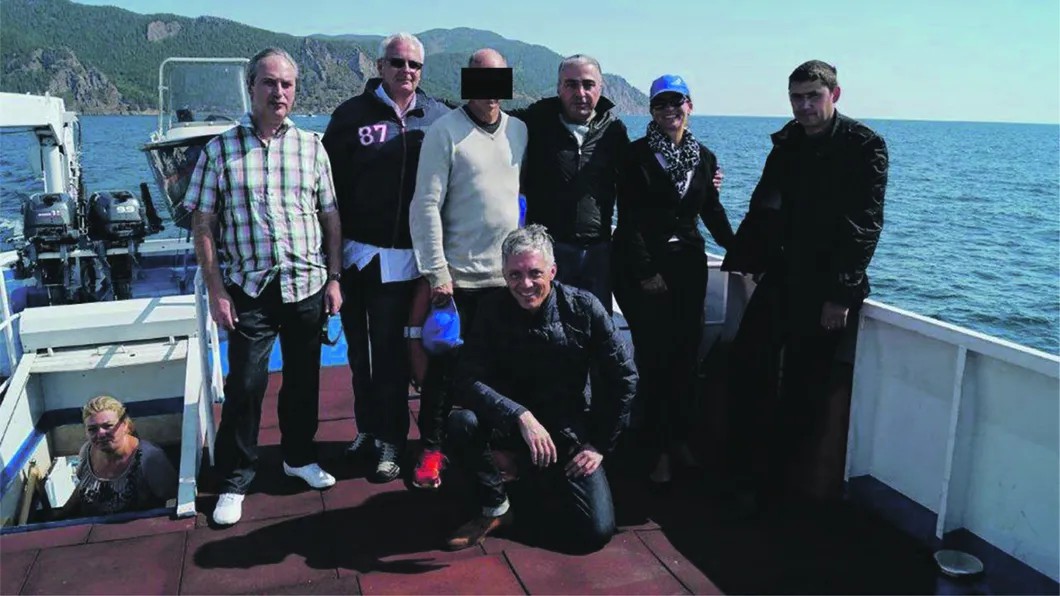
The trip led to a scandal in the Swiss media: a photo was published where the listed Swiss law enforcement officers were photographed with the head of the Main Directorate for International Legal Cooperation of the Prosecutor General’s Office Saak Karapetyan (the one who would later die in a plane crash during an illegal hunt). The Prosecutor of the Confederation was unlucky enough to kneel to fit into the frame, and
The Swiss newspapers were full of headlines like “Lauber’s Kneeling in Russia.”
The Swiss prosecutors used to fly to Russia on the plane owned by the Russian Prosecutor General’s Office after meeting with Chaika at the Davos forum in September 2015. Soon after, Novaya Gazeta and Navalny publish a joint investigation into how the sons of the Prosecutor General invested in Swiss real estate. And in 2016, the Swiss Prosecutor General’s Office decides not to initiate criminal proceedings against Chaika Jr.
It was getting absurd. In 2017, Lauber received a dinnerware set from Russian prosecutors as a gift which was so huge that it was left for storage at the Swiss embassy and could not be taken out of there for several months.
In 2014 and 2015 Lamon, Schnell and prosecutor Anna-Claude Scheidegger went to Moscow for negotiations with the Russian Prosecutor General’s Office. Both times Sahak Karapetyan who is responsible for interacting with foreign law enforcement agencies invited them to restaurants and during a friendly feast called to stay for the weekend and go hunting. Lamon always refused on a specious pretext. But Schnell agreed. Both times the hunting trips went according to the same scenario: after the other Swiss left for the airport on Friday night, Schnell was picked up by Sahak Karapetyan “in a car with a blue flasher and a siren to the outskirts of the city” (here the judge remarks: “It's difficult to leave Moscow on Friday without being stuck in traffic jams”), there they were transferred to other cars and drove to the hunting grounds located in the Yaroslavl region owned by an Armenian “oligarch”, a member of the regional Duma whose name remained encrypted, but only Tigran Kazaryan probably falls under this description.
Kazaryan made his fortune by working with billionaire Samvel Karapetyan (Sahak Karapetyan’s namesake) and his Tashir group of companies. According to Schnell, the “oligarch” allegedly owns “state forests” in the Yaroslavl region.
According to Schnell’s testimony in the courts, he asked his boss Lamon for permission, and he advised him to go hunting in order to obtain potentially useful information. According to the testimony of Lamon, no one asked him for permission. In any case, both times Schnell went with Karapetyan to the Yaroslavl region, where he participated in the hunt for wild pigs. According to Schnell, he never liked hunting and did not want to kill animals, so he deliberately shot past wild Russian pigs.
Schnell did not particularly hide his adventures from the colleagues and told them about these trips in Switzerland, in particular, during Monday’s brief meetings and in the criminal investigation department.
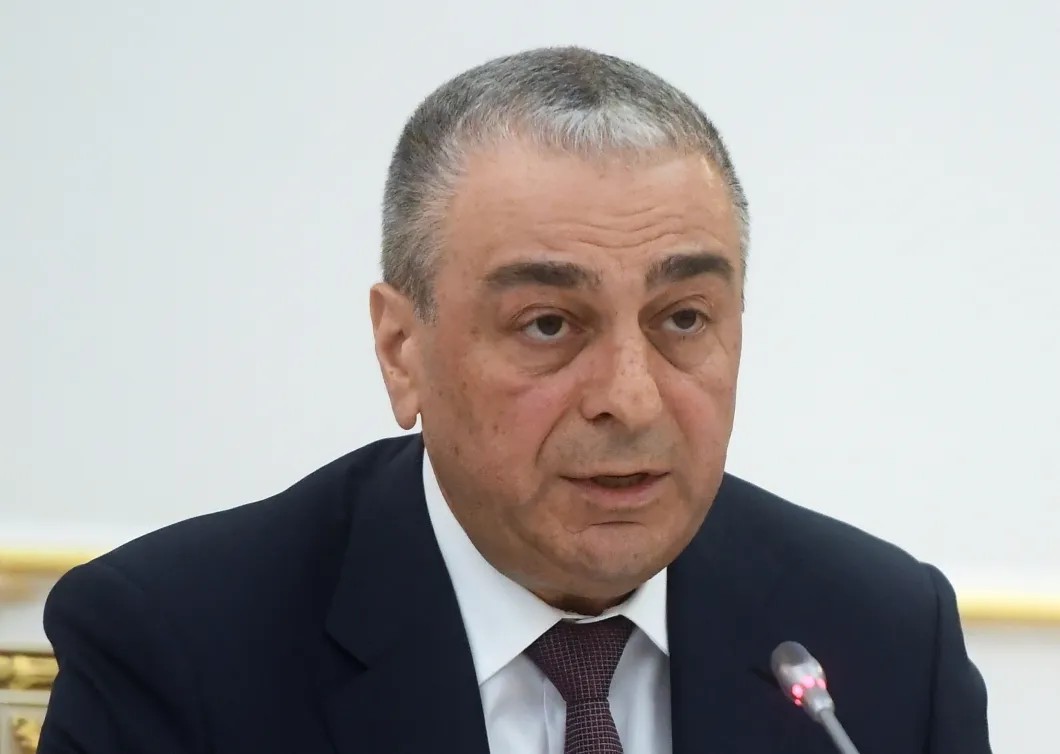
Lamon did not clarify to the court what explanation he delivered about the absence of one of the members of the delegation when he returned to Switzerland.
In 2016, after Karapetyan’s visit to Switzerland, all of a sudden he invited Schnell to Russia for hunting for a week. Schnell took a vacation and went to Russia. According to Schnell, so far as he understood Karapetyan, they would again go to the Yaroslavl lands to shoot wild pigs, and he was very surprised when Karapetyan and his Yaroslavl Armenian friend-oligarch were not taken to the Yaroslavl region, but instead they were put on a scheduled flight to Kamchatka. There for a week Schnell went fishing and “hunted”, including from a helicopter – again, according to his words, he tried not to hit the bear prepared for him, but since such a beast is dangerous, the bear was still (apparently) shot by the Russian prosecutors.
Schnell took a picture on the background of a dead bear, the photo was attached to the materials of the Swiss court.
The Swiss court estimated the market value of the trip to Kamchatka when the bear was killed at 10,000 francs. Describing Kamchatka from Schnell’s words, the Swiss judge allowed himself to deviate from the boring clerical language, and the sentence contained the following comment: “and the rivers are full of fish there”.
Поддержите
нашу работу!
Нажимая кнопку «Стать соучастником»,
я принимаю условия и подтверждаю свое гражданство РФ
Если у вас есть вопросы, пишите [email protected] или звоните:
+7 (929) 612-03-68
Later in court, Schnell will say that he went to Russia on a hunt and not for a holiday. According to him, he went to collect information that would help him attack the parliamentary representative Andreas Gross who made a report on the death of Magnitsky on the instructions of the Council of Europe in 2013.
In November 2016, Gross was summoned for questioning by the Swiss prosecutor. Schnell interrogated him all day long. At that the former deputy Gross, as he explained to the press, tried to convey to Schnell that some employees of the Russian General Prosecutor's Office were part of organized crime. Schnell explained to the court that the criminal case against the people involved in the Magnitsky murder had to be dismissed quite a while ago, but for this it was necessary to “strip the credibility” of Gross’s report and “tear off his masks”.
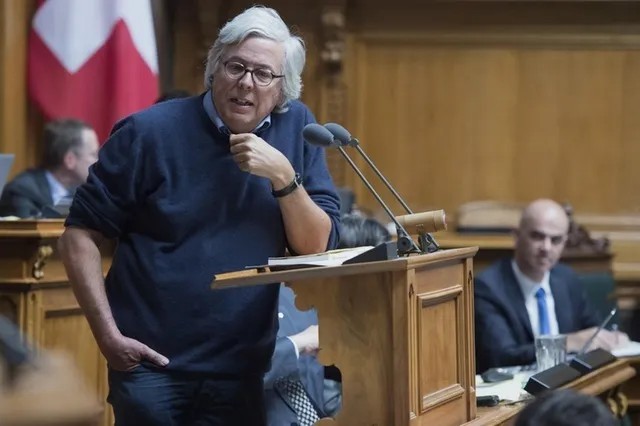
The chief prosecutor Lauber did not refute nor confirm that the “tearing of the masks” took place by his direct order. At that both Lauber and Schnell confirm that they have always been in a close professional relationship.
At the end of 2016, on Christmas Eve, Schnell received a phone call from the Deputy Prosecutor General of Russia Karapetyan. He urgently called him to Moscow for a confidential conversation. Schnell decided, as he said in court, that the Prosecutor General’s Office had finally received a document that the Swiss had long wanted, and that it was related to the documents that would have allowed the Skrynnik case to not be completely ruined. The statute of limitations for this case expired at the beginning of 2017. The prosecutor Lienar Oksner who was in charge of the Skrynnik’s case had told Schnell several times before that he should find out directly from the Russians why there was no answer to requests for legal assistance under this case. And Schnell considered these questions as an instruction. But Schnell's formal boss in the police department, Robert Clement, refused to provide him a business trip referring to the fact that Schnell had a lot of overtime work and unused vacation time.
And then Schnell, without consulting with anyone, as he claims, buys a ticket to Moscow on December 27, 2016 at his own expense using his diplomatic passport. Before leaving, Schnell told Oksner that he would receive documents on Skrynnik in late December – early January, without explaining that he was going to travel to Moscow to obtain them on his day off at his own expense. In Moscow, Schnell’s accommodation is paid by our Prosecutor General’s Office (which is provided for by the international agreement for official delegations, but not for private individuals).
Schnell meets with Karapetyan in anticipation, as he told the court, of valuable dirt on Skrynnik.
But Karapetyan explains: no, there will be no documents on Skrynnik – they supposedly decided so “at the top”. And instead of studying the documents, Karapetyan takes him to a meeting with the lawyer Natalya Veselnitskaya, who at that time represented the interests of Magnitsky’s tormentors!
Schnell claims that this was a surprise for him.
We recall that Sergey Magnitsky, the lawyer of the British-American investor Bill Browder, provided to the Investigative Committee the information on a scheme for the withdrawal of state money, in which corrupt judges, tax officials and Russian law enforcement officers participated. In total, the amount exceeding $ 230 million was stolen from the Russian budget and transferred to foreign accounts, including the ones in Switzerland. Tax officials and law enforcement officers who profited from the theft of public money bought property in New York, Dubai and Montenegro. The participants in this scheme were not punished in Russia, but on the contrary received promotions and awards. Magnitsky was imprisoned and killed in the prison. The only employee of the Prosecutor General’s Office who was trying to figure out the case of Magnitsky’s death was fired and blacklisted. Bill Browder secured passage of laws on personal sanctions against Magnitsky’s torturers.
The efforts of Bill Browder in a number of jurisdictions have opened criminal proceedings against some characters from the “Magnitsky case”. So, in the United States, a case was being investigated against Denis Katsyv, who was investing through Prevezon Holdings and buying property in New York. Natalia Veselnitskaya represented Katsyv. But most of all, Veselnitskaya became known after her meeting with Trump's son and son-in-law during the 2016 election campaign. Trump was interested in finding compromising materials on his political opponents, Veselnitskaya seemingly promised to get them, but brought nothing. However, she tested the waters with a proposal to cancel the “Magnitsky Act”. Apparently, after the neologisms “krysha” (crime sponsored cover) and “siloviki” (security chiefs), which have firmly entered the English vocabulary, it seems that the word “razvodka” (scam) is the next in line.
According to Schnell’s testimony in the Swiss court, he discussed three criminal cases with Karapetyan, including the case of Magnitsky’s tormentors. During the court hearing the Swiss judge noted sarcastically that usually international legal assistance is provided in a more formal framework.
On December 29, Schnell returns.
And the same date is on the letter from the Prosecutor General’s Office to Switzerland stating that there were insufficient grounds for suspicion of Skrynnik accomplices, who, according to the Swiss court ruling to dismiss the criminal case, helped her allegedly launder about $ 70 million. Therewith Switzerland has been refused legal assistance. The criminal origin of the money is a necessary requirement for a legally defined crime of “money laundering”. Such evidence could be established for the Swiss court only by submitting testimonies of Russian witnesses and Russian documents: Skrynnik was receiving money in Russia, and in Switzerland she only legalized them under the guise of transactions with (non-existent) real estate. The refusal of the Russian law enforcement officers to question witnesses and submit documents became the basis for the termination of the criminal case of Skrynnik.
Upon his return, Schnell verbally reports the conversations to Lamon, his curator from the prosecutor's office.
The police are furious when they learn about an unauthorized trip with the use of a diplomatic passport and other tricks.
Schnell, as he said at the court, was sure that in case of problems with the police he would be able to resolve the issues at the Lauber level. Apparently, he failed. The police of the canton of Bern conduct a search in the office of the federal criminal police employee Schnell and on February 8, 2017 they send an offense report to the prosecutor’s office under several articles:
- abuse of authority;
- corrupt practices;
- violation of official secrets;
- bribe.
The prosecutor's office is forced to initiate criminal proceedings against Schnell.
He is suspended from work on February 15, 2017 and dismissed. He lost the civil suit for reinstatement of employment. Meanwhile, prosecutors investigated the case and dropped all charges, leaving only one article:
- “Vorteilsannahme – illicit enrichment due to employment activities”.
This article is less efficient than our Russian “bribe”; according to our legislation, a bribe is always “for” something: a specific action, inaction, general patronage in employment; the article according to which Vinzenz was convicted presumes as the objective element of the crime only the receipt of any unaccounted for funds in addition to the salary in connection with official activities regardless of the purpose of the giver of these benefits; the meaning of this corpus delicti is understood by Swiss lawyers as “preparation for a bribe”. There were four episodes under this article in the indictment: two with Russian wild pigs, one with a bear and one with Veselnitskaya.
The prosecutor’s office was unable or unwilling to prove that Schnell was negotiating without proper authority on behalf of the Swiss federal prosecutor’s office, that he had divulged the Russians important sensitive information.
The investigation was conducted by prosecutor Carlo Buletti, who used to be Schnell’s neighbour in the office. The prosecutor’s office charged Schnell a fine of 20 thousand francs.
Vinzenz could have agreed with the fine he was given, and that would have been the end of the story. But he challenged the fine in the administrative court, as well as his dismissal, so the penalty order turned into an indictment and went to the criminal court. Lauber and Lamon were called to the court as witnesses.
At the trial, Schnell pathetically stated that he acted for the benefit of the Swiss law enforcement system. In addition, making excuses, Schnell in particular stated that since he wasn’t an employee of the federal prosecutor’s office, he could not influence the course of the investigation, therefore he could not receive a bribe as such.
Lauber and Lamon praised him in eager rivalry as the most valuable employee. At the same time, Lamon showed ridiculous memory lapses, and the absence of official reports to Lamon about Schnell’s trips to Moscow was explained by his alleged “dyslexia”, i.e. inability to read. Also in the process, which was conducted in German, Lamon, who studied law in the bilingual canton of Freiburg, suddenly forgot German and demanded a translator from French.
Lamon was confused in the testimony: first he claimed that he had learned about the hunt for bears from the newspapers, and all of a sudden – that the Swiss criminal police informed him on the matter.
As a result, Vinzenz was sentenced to an insignificant by Swiss standards fine of about 9,000 francs, and this sentence was conditional, if he does not commit similar crimes in the next two years (which will obviously be observed, since Vinzenz is no longer a police officer). The court sentenced him under only one incident – with the bear. The judge did not accuse Vinzenz of the pigs and Veselnitskaya and acquitted him of these incidents.
The trial of Schnell attracted the attention of the Swiss public. Schnell's patron Lauber has already made blunders in private meetings in restaurants with FIFA leader Gianni Infantino, while a massive investigation was underway regarding a multi-million dollar bribe during the organization of the 2006 World Cup in Germany. Subsequently, the criminal case in the Federal Criminal Court collapsed due to the expiration of the statute of limitations. And now Lauber is suffering from amnesia about those meetings with Infantino in restaurants, he cannot remember any details of the conversations, or even the names of the participants.
Now there are accusations against the entire Federal Prosecutor's Office that in fact it was in solidarity with Magnitsky’s tormentors. The case of money laundering in relation to the latter, apparently, has every chance of collapsing. On the other hand, the transfer of confidential information to the Russian side, which could have occurred due to Schnell’s activities, may come in handy for those who would like to arrange a “witchcraft trial” in Moscow in the form of another buffoonery proceeding, aimed not at identifying villains, but whitewashing them.
After Vinzenz’s dismissal, “Moscow knocked on the door of Bern”: the Swiss law enforcement officers were asked for protocols for interrogating Magnitsky’s colleagues, who were interrogated in connection with the circumstances of his death. Other Western countries in similar situations responded to the Russian law enforcement officers with a refusal due to the fact that no objective investigation of the Magnitsky case is possible in present-day Russia for political reasons.
Now the political future of the head of the prosecutor's office of the Swiss Confederation is under a big question mark. According to Lamon’s testimony in court, he was initially “very pleased” with Schnell’s trip, during which he did not receive any documents, but still communicated with Veselnitskaya.
Was the “tearing off the masks” from the deputy Gross performed by the Swiss Federal Prosecutor's Office by order of the Kremlin?
Simultaneously with the process of impeachment, the Schnell case is considered in the court of the second instance. Even after the first instance verdict Schnell tries to fully prove his innocence, motivating the trip with official necessity.
But Schnell’s trips to Moscow after his resignation remain as the biggest mystery of the whole story. At the trial, Schnell constantly stated that he went with the Russians to hunt as to work, i.e. due to official necessity, and if he has something to repent of, then it is only with excessive zeal to serve the Swiss justice, albeit with a violation of formal subordination. Schnell described the indictment in his case as a “stab with a dagger in the back”: he spent so much effort, obtained such a huge amount of necessary information – and now his life is ruined.
OK, but what did he do in Moscow? If he no longer had the right to represent the interests of the Swiss prosecutor’s office?
By Andrey Zayakin, Novaya Gazeta
Поддержите
нашу работу!
Нажимая кнопку «Стать соучастником»,
я принимаю условия и подтверждаю свое гражданство РФ
Если у вас есть вопросы, пишите [email protected] или звоните:
+7 (929) 612-03-68
